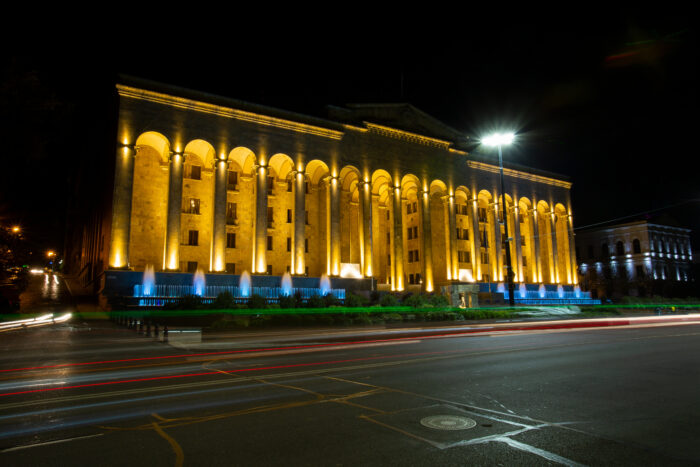Human Rights House Foundation and Human Rights House Tbilisi condemn recent actions by the Georgian authorities to limit freedoms of expression and assembly, linked with the political crisis which has engulfed the country during past months. We call on the Georgian authorities to reverse these recent actions and take immediate steps to protect human rights in line with Georgia’s international obligations.

Human Rights House Foundation and Human Rights House Tbilisi condemn recent actions by the Georgian authorities to limit freedoms of expression and assembly, linked with the political crisis which has engulfed the country during past months. These actions include attempts to silence dissenting and critical voices, detention of peaceful protesters and smear campaign launched against the country’s Ombudsperson by the MPs from the ruling party. We call on the Georgian authorities to reverse these recent actions and take immediate steps to protect human rights in line with Georgia’s international obligations.
In the last week, the Georgian authorities have taken extraordinary steps to silence dissenting and critical voices and narrow the space for protest. Human Rights House Foundation and Human Rights House Tbilisi condemn these recent actions to limit freedoms of expression and assembly and urge the Georgian authorities to demonstrate a commitment to human rights as they seek to identify a path forward in the current political crisis. On 19 February 2021, activists attempted to shift an existing protest from the back of the Parliament building to the front. Despite constitutionally guaranteed rights to gather and protest without prior permission, police reportedly detained nearly 25 activists for setting up protest tents. Four days later, on 23 February 2021, the authorities again detained a peaceful activist from the Shame Movement for criticising Prime Minister Gharibashvili.
The actions by the Georgian authorities to limit freedoms of expression and assembly extend beyond protests linked to the political crisis. On 22 and 23 February 2021, police in Western Georgia moved against activists protesting the renewed construction of a hydroelectric dam in the Rioni Valley. Activists were protesting against what experts and civil society organisations call a flawed public participation process that did not meet legal requirements for such construction. Police have increased their presence in the Rioni Valley and are preventing the free movement of activists as well as the right of the activists to express their concerns.
While placing limits on the freedom of assembly and expression, the Georgian authorities also appear to be tacitly allowing attacks on the country’s Ombudsman by ruling party officials. On 23 February 2021, the Ombudsperson raised concerns about the detention of the leader of Georgia’s largest opposition party and actions by the government to stoke the ensuing political crisis. Three members of Parliament from the governing Georgian Dream party, Dmitri Samkharadze, Mamuka Mdinaradze and Gia Volski, smeared the Ombudsperson for her legitimate work defending the human rights of all irrespective of their affiliations.
The Georgian authorities have an obligation to protect and promote the freedoms of assembly and expression. Peaceful assemblies enable individuals to participate in shaping their societies and represent an opportunity for resolving differences in a participatory manner. We also remind the Georgian authorities that the UN Human Rights Committee explicitly recognizes that the erection of temporary structures is protected by the freedom of assembly. Likewise, expression that is critical of authorities and might be shocking to some must still be protected by freedom of expression. Recent actions by the Georgian authorities to challenge these freedoms by limiting space for protests and attacking dissenting and critical voices run counter these obligations. We condemn the actions by the Georgian authorities and urge them to demonstrate a commitment to human rights as they seek to identify a path forward in the current political crisis.

